New Year’s Day 1993, 7 am, parish of St. Elizabeth, Jamaica, West Indies
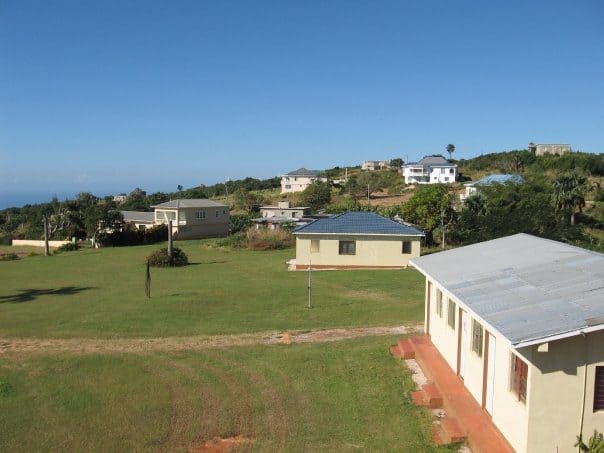
Table of Contents
I climbed into the gray Nissan fourteen-seater minibus that served as the camp vehicle and our family’s transportation. My itchy Sunday dress stuck to my skin in the warm humid morning air. I peeled it off my legs as I dashed for a window seat at the very back of the bus, reaching it just before my younger brother Philip.
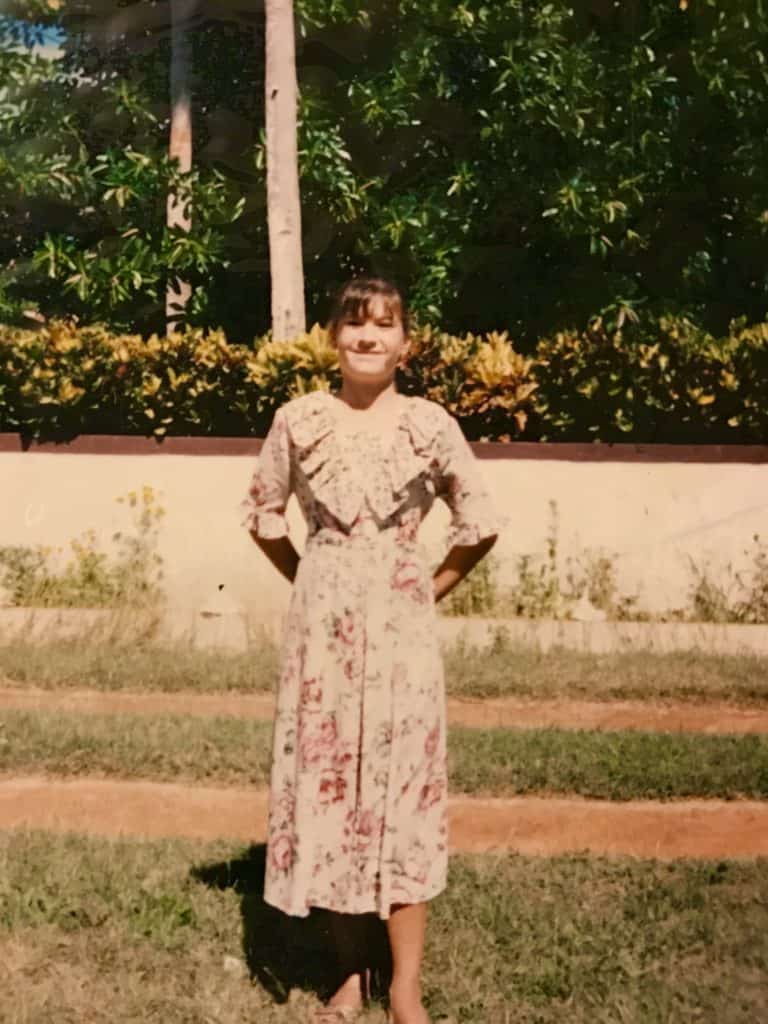
He quickly snagged the window seat on the other side of the bus. We both knew that for the next two hours, the bus would be filled with other hot sweaty bodies.
A window with a view was the only possibility of making the drive slightly less uncomfortable. You might be squashed into a corner, but at least you’d be able to see out the window and open it for fresh air!
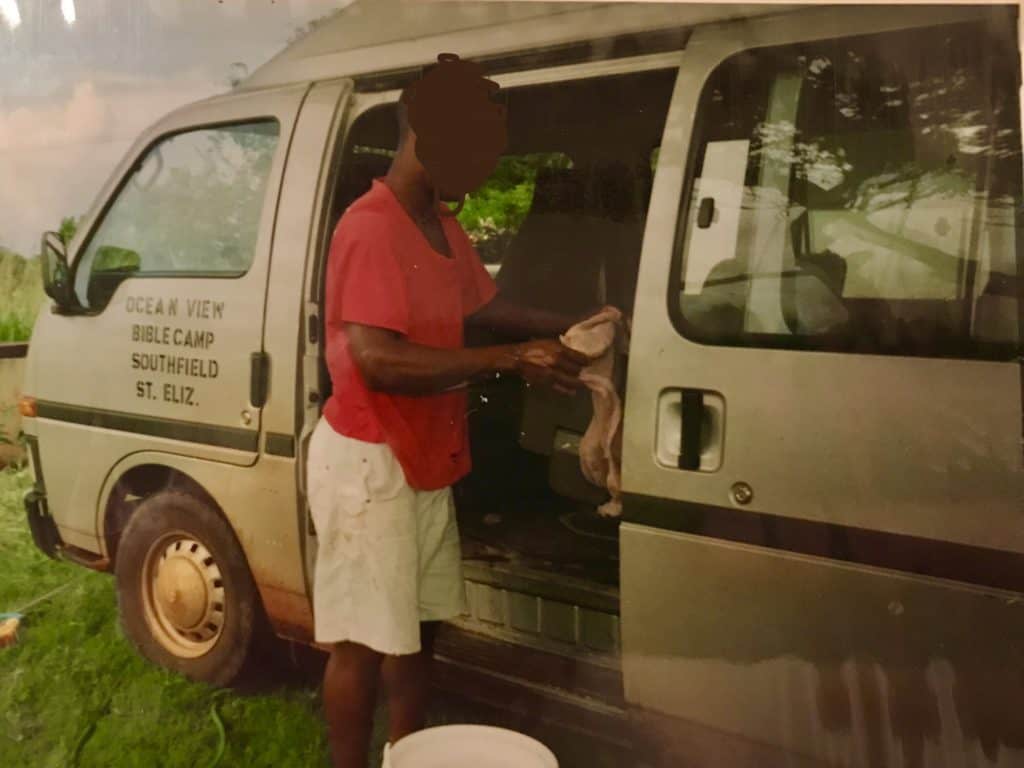
Cottage one-day conference
We had only been on the island for a few months when we went to the one-day Bible conference at Cottage.
These conferences were torturous for me as a typical American tomboy. The schedule for the day entailed two to three hours of sitting for prayer, then Bible study, with a few hymns mixed in for variety. The benches were simply constructed out of two by six boards with no cushions at all.
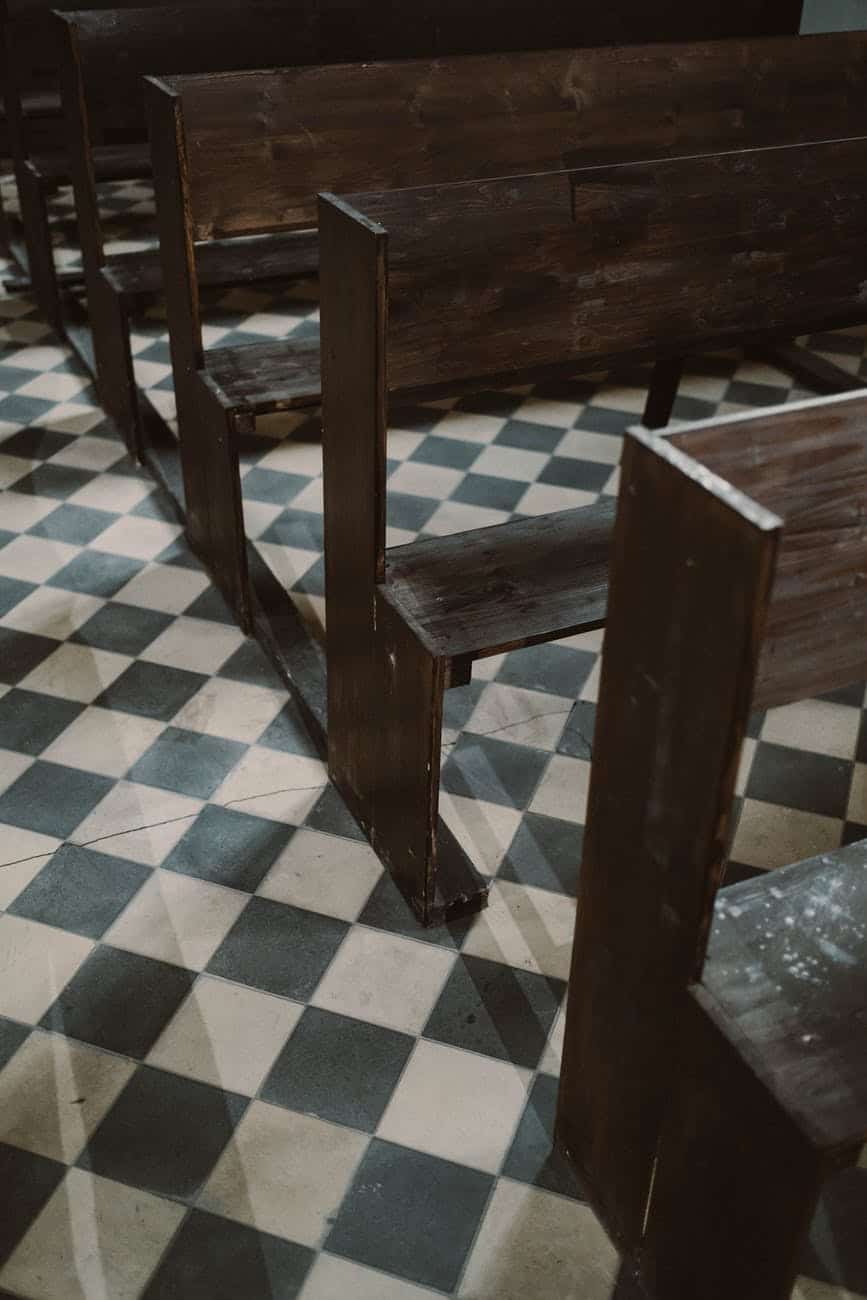
The only way the building was cooled was by opening the glass louvered windows to let the breeze through. It was sticky, hot, and uncomfortable, sitting as close to the person next to you as possible to make room for as many people as possible to sit down inside.
A building that could comfortably hold twenty people was usually packed full with closer to eighty or ninety! There were more people sitting outside on benches near windows, trying to listen.
Bible conference food
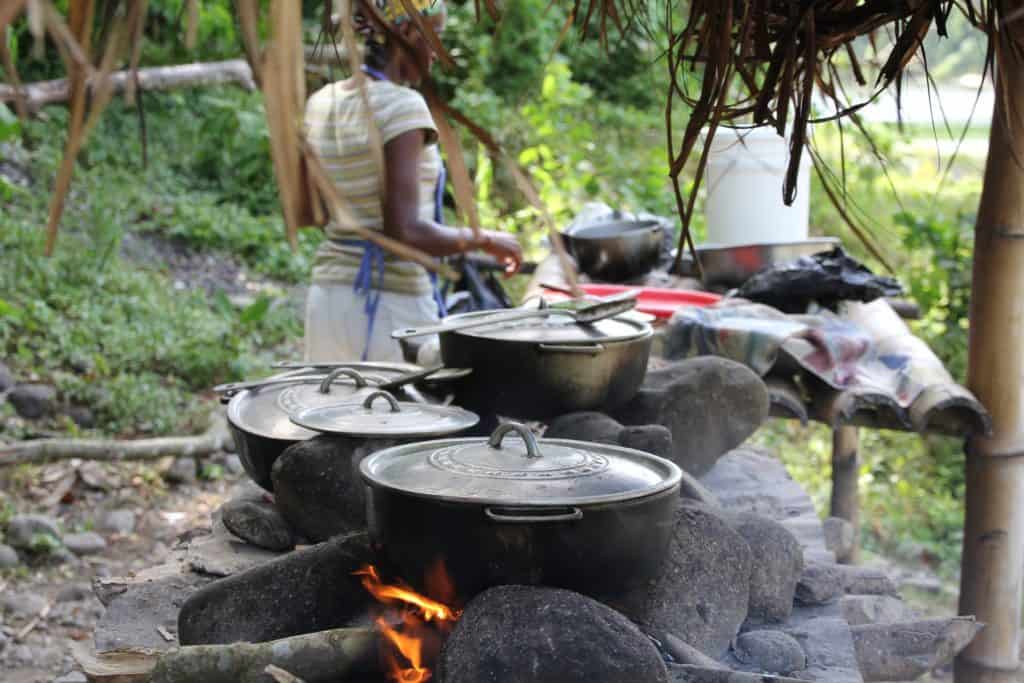
Then lunch would be served; strange food for me, who had grown up with macaroni and cheese, or turkey and mashed potatoes. The local ladies had been cooking all day to prepare for all the guests in attendance.
The mannish water and curried goat, or barbecued chicken with rice and peas were considered a special holiday meal, and were served in paper boxes to each guest at the conference. After lunch, there would be another two hours of preaching and a couple more hymns, then the long, hot drive home.

At the church conferences there were no playgrounds, no children’s ministry, not even a ten-minute stretch break. As a missionary kid, I was expected to sit quietly and do my best to pay attention and not make a disturbance.
Sometimes my mom would allow me to take my little sister out for a short walk around the building, because Beth was still too little to sit for so long. That was the only real relief I could look forward to.
Cottage, Jamaica: Remote and isolated
Cottage was a tiny village in the Cockpit Country** mountains in the middle of Jamaica. Much of the island at that time had no telephones, no television (or only a single channel), and some areas still lacked electricity and running water.
Cottage was remote, a solid two or three hours of driving along roads riddled with potholes, in humidity so thick that you felt you had just stepped out of a hot shower.
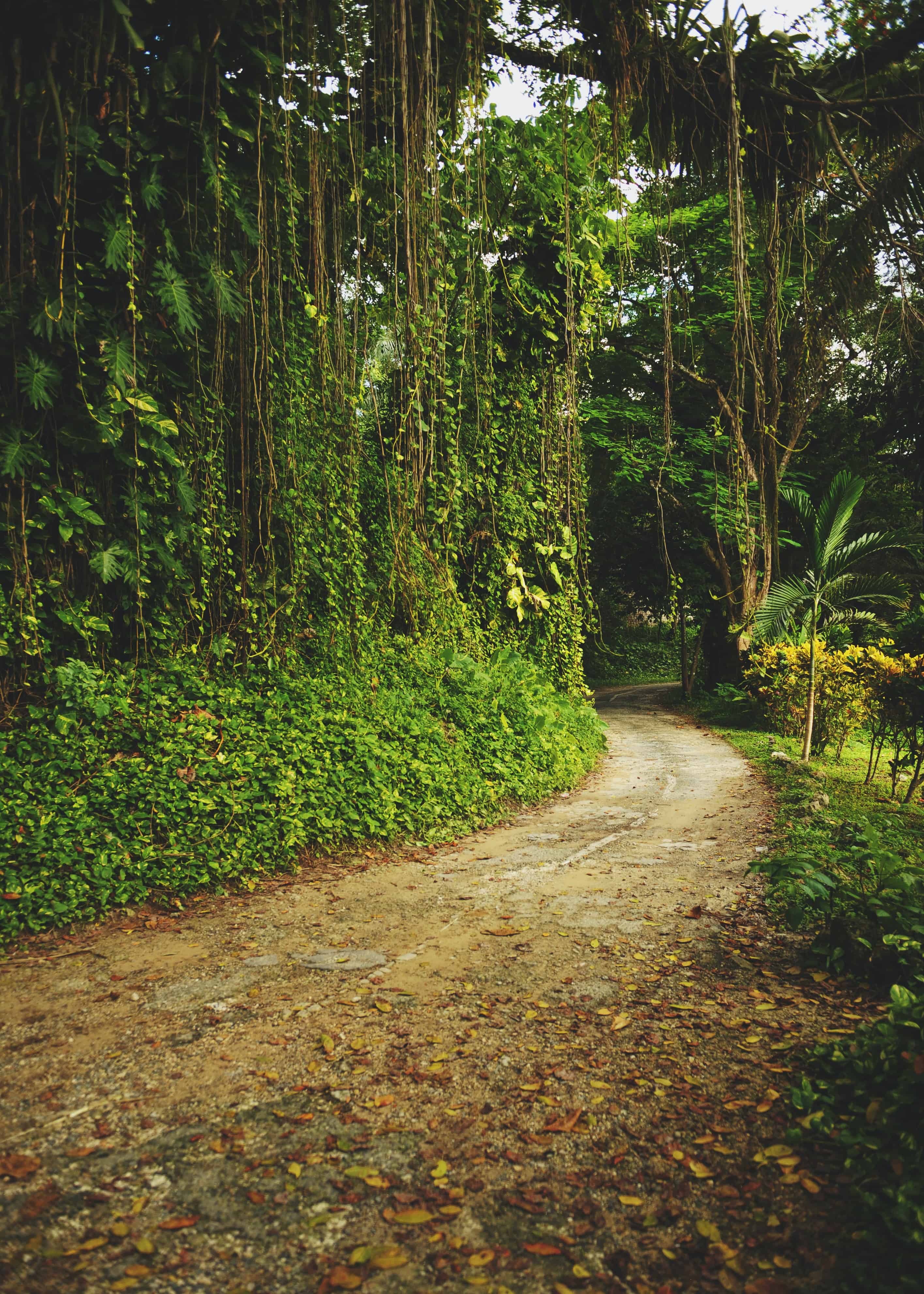
The countryside was lush and green with tropical plants, and the occasional flash of red dirt or white limestone outcrops. We passed banana farms, sugar cane fields, limestone quarries, and the occasional goat or cow grazing alongside the road.
No tourists here!
Cottage was not a tourist area. The tourist areas of Jamaica generally lie near the coast, and there were few roads at that time that traversed the mountainous interior. In the popular tourist areas, foreigners from many countries were welcomed and ubiquitous. There was nothing in Cottage to draw tourists in- subsistence farming was the way of life here.
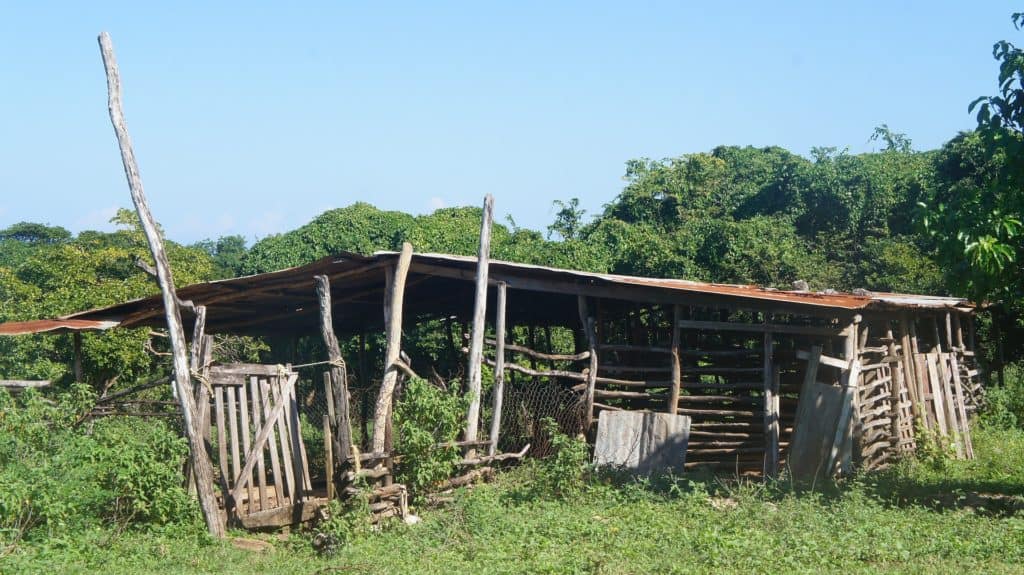
Many people couldn’t read, and had little or no schooling, particularly the older people. This was a major reason to host the conference- it allowed for extended preaching, which could be listened to by those who could not read the Bible.
It was several hours’ walk to get out to a main road, and no one in Cottage owned a vehicle. Taxis would not even take you all the way to the church building, because the road was so bad it could destroy your suspension or tires!
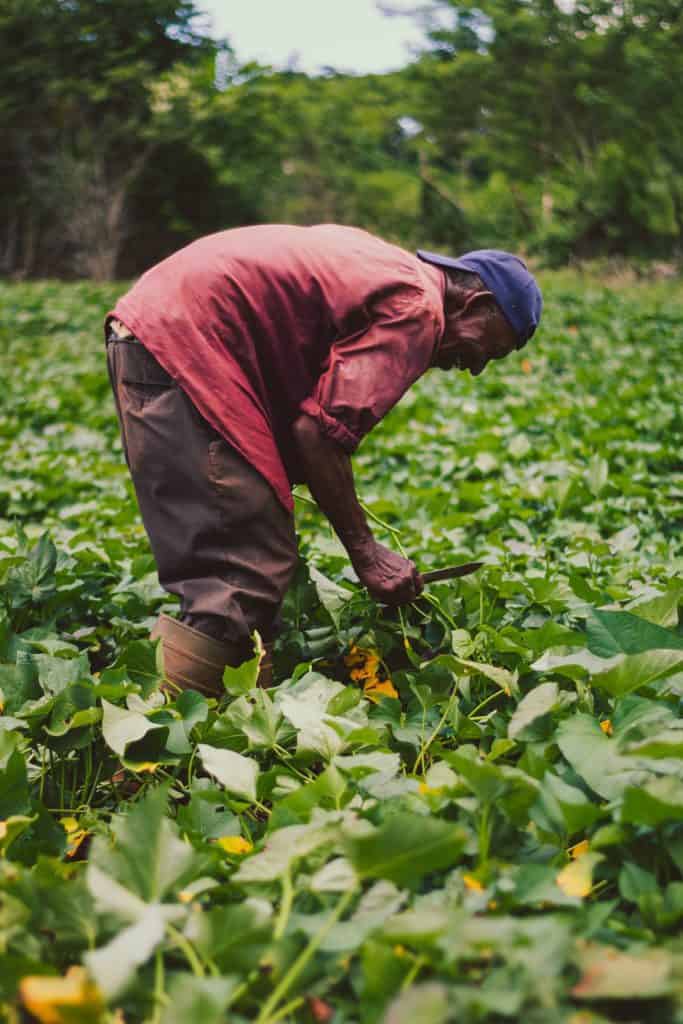
Arrival in Cottage
Our arrival in Cottage caused quite a stir. Our minibus was overstuffed with at least twenty people, and this area rarely saw vehicle traffic. Vehicles were expensive, and there were only two people in our local church that owned one besides the camp bus. Cottage had even fewer vehicles.
However, it wasn’t the bus that kept people’s attention. People stared, fascinated, at my two year old sister, who had beautiful blond curls and big blue eyes.
Within a few minutes of us parking the van, there were dozens of children appearing from the nearby bushes and footpaths, staring and laughing together. I didn’t know what they found so unusual.
The conference begins
As we disembarked and walked into the tiny one-room church building along with the other passengers, the local children followed at a distance. We found seats on the hard benches and settled in for a long day.
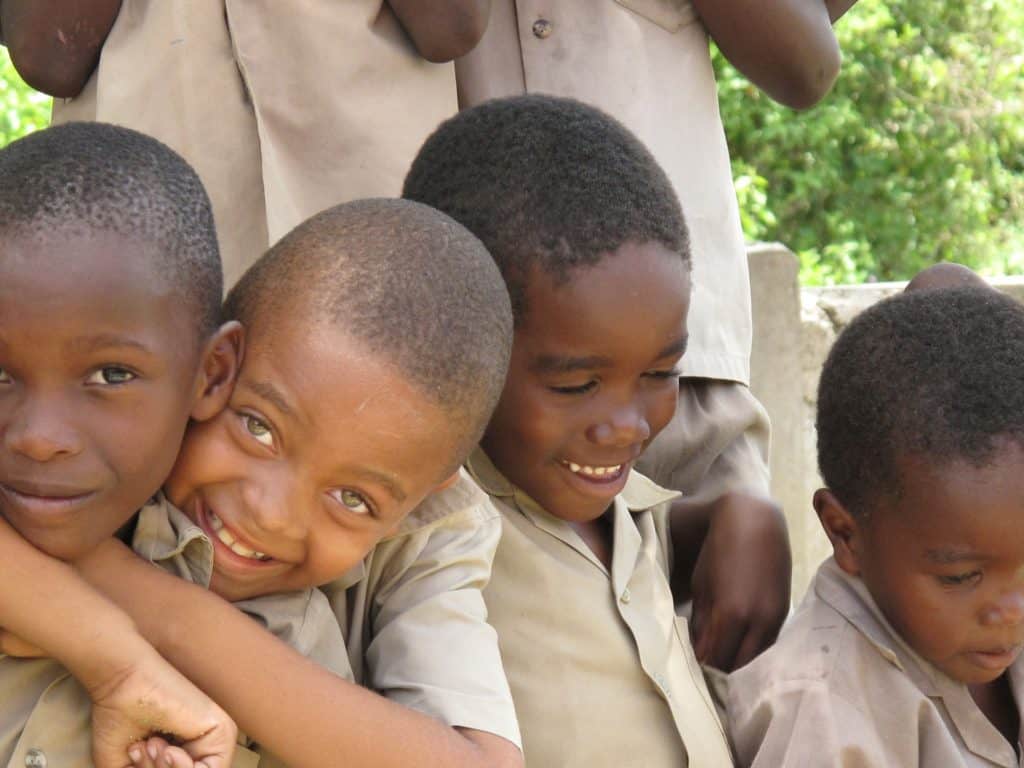
I felt afraid and uncertain how to act with all those eyes on us and the giggles and grins as the local children watched our every move.
In our local town of Southfield, white Americans had lived at camp as managers for over twenty years, and many others came to stay at camp three times annually as the camp hosted American medical teams. The neighbors were used to seeing American missionaries, and we were already making friends with local children.
The unusual interest here in Cottage puzzled me and caused my siblings and I to stick close to Mom throughout the day.
Language challenges
I was still learning the local Patois dialect, and the Jamaican accent was difficult to decipher for all of us children. Although I was old enough to appreciate learning about the Bible, there wasn’t much I could understand of what was being said. Occasionally I recognized the Bible passage we were reading from.
I tried to sing along with the hymns, but often they were sung to a tune completely different from the ones I heard back in the States. It was a long day of boredom and discomfort.
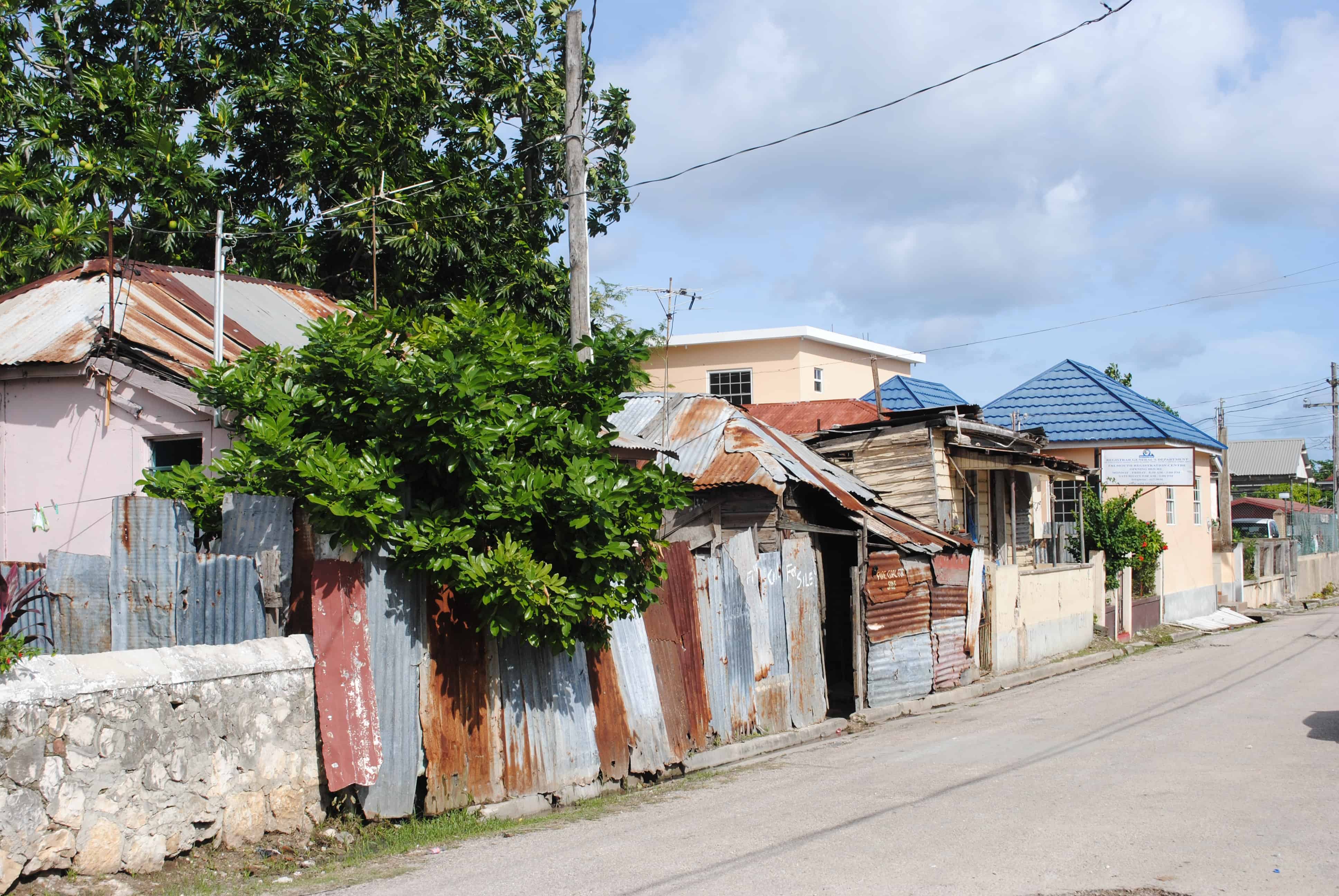
Rain to the rescue
This conference day, however, was going a little differently. About 30 minutes after lunch, the oppressive heat and humidity broke into a sudden downpour. Since the roof was simple corrugated zinc, the noise of the rain was deafening.
The study continued, regardless, as the men preaching shouted over the rain to be heard. The rain cooled things off considerably, and my mom, seeing my siblings and I totally worn out from heat and sitting still, permitted us to go lay down in the minibus outside. The rain had stopped.

We each claimed a bench seat to lay down on, opened the windows to let the breeze through, and tried to nap. Napping is a challenge on vinyl seats in a humid country. My skin kept sticking to the seat, and I had to peel myself off the seat carefully to avoid a rug burn!
Surprising discovery
I tossed and turned, trying to make a pillow out of my Bible. I gave up after a few minutes and sat up, then startled in surprise.
The bus was surrounded by the local children! They crowded around the windows, and stared at us curiously, all the while chattering cheerfully in Patois. Several children started to reach in through the open windows, reaching towards my face. Others reached in to touch my brothers’ hair, and grabbing at my little sister, trying to touch her curls.
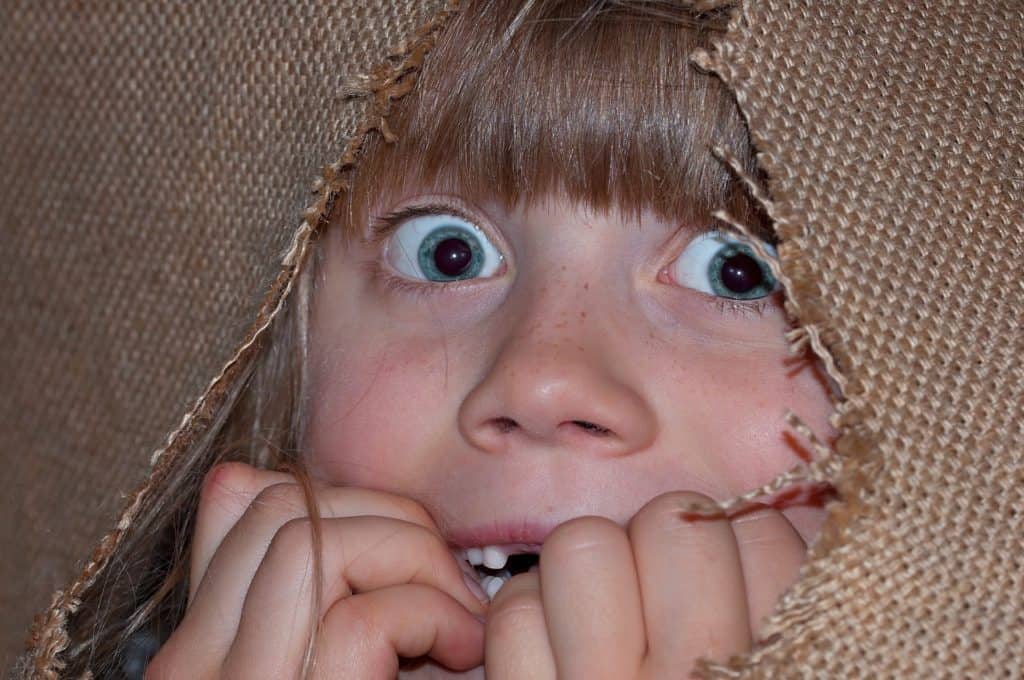
We were terrified, and scooted as far away towards the middle of the seats as possible! I wanted to slam the windows shut, but doing so meant I had to reach around and over the children who were crowding inside the windows to touch us.
I was petrified, and had no idea what to do. We could not understand what they were saying, but one word was repeated often: “duppy”. My little sister, frightened at being surrounded by people she did not know and speaking words she did not understand, wailed and cried.
Terror abated
Just then my mom walked quickly out of the building. She had seen the crowding children and heard my sister’s shrieks. Sizing up the situation, she came into the bus and started to shut the windows. Mom picked up my sister and cheerfully sent the neighborhood children off to observe at a distance.
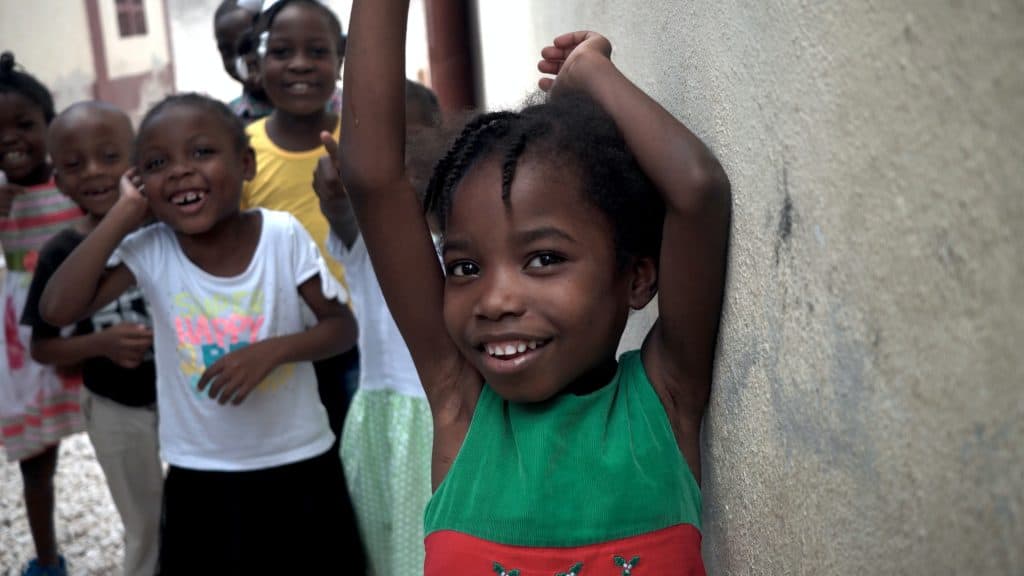
They obeyed quickly and without protest—even though we could not understand Patois, most Jamaicans even in the country areas understood American English. I clung to my mom, with my brothers and sisters.
She assured us that the children weren’t trying to hurt or scare us but were simply curious. I believed her, but it didn’t make me feel safe! She stayed with us out in the van until the conference was over.
Homeward bound
As we loaded up our passengers and started to drive off, we passed more locals. One of them cheerfully called out, “Hey, Whitey!”. This was a regular occurrence, especially in the first years of our eight year time in Jamaica.
There was no anger, no attack in the epithet: just a simple acknowledgement of the obvious fact that our skin color made us notable on the island.
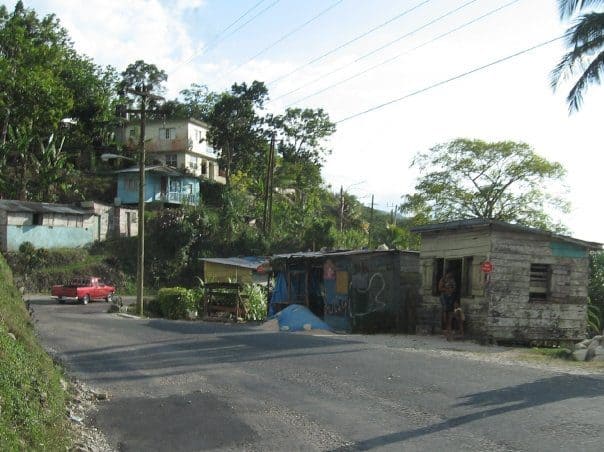
At home, Mom explained to us that the children had probably never seen a white child before, and that we looked like dolls to them. That helped us to make sense of the situation, but I never forgot that feeling of being an object, not a real person. I did not know then just how often that feeling would show up in my life.
So that’s what it meant!
It was several years later, when we came to speak Patois fluently, that we finally learned what that word, “duppy” meant. Duppy is the Jamaican Patois word for “ghost”. Superstition was strong in Jamaica, especially in the remote parts of the island where secondary education was less available.
The children were reaching in to touch us because they had apparently concluded that anyone with skin that fair must be a ghost!

That was the only time our family made the trip to the Cottage conference. After that incident, my mom kept us home from conferences in remote locations, and my dad went with a full bus of other Southfield church members. I can’t say that I missed it!
**Cockpit Country has a fascinating history, and I highly recommend further reading on it. Here is the link to the wikipedia article source. Cottage is so small, that I could not even find it on the current Google map of Jamaica!
© Copyright 2021 Jennifer D. Warren
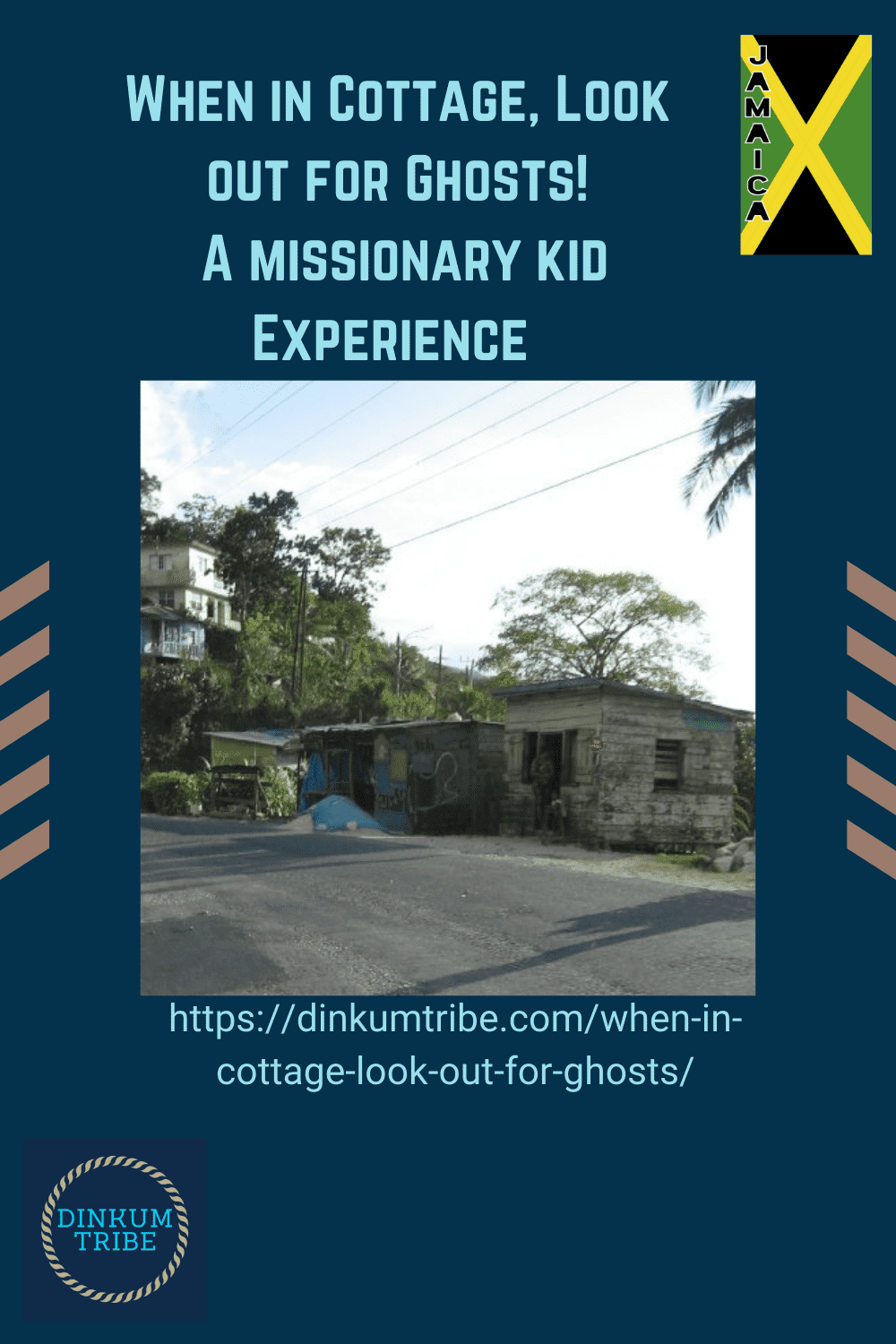

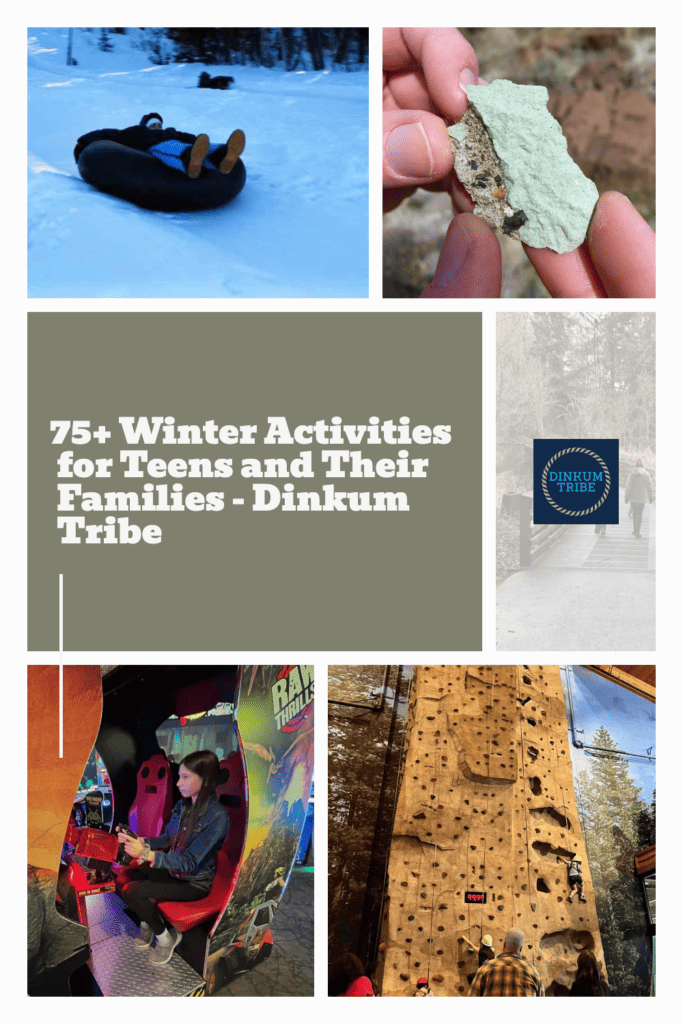

Comments